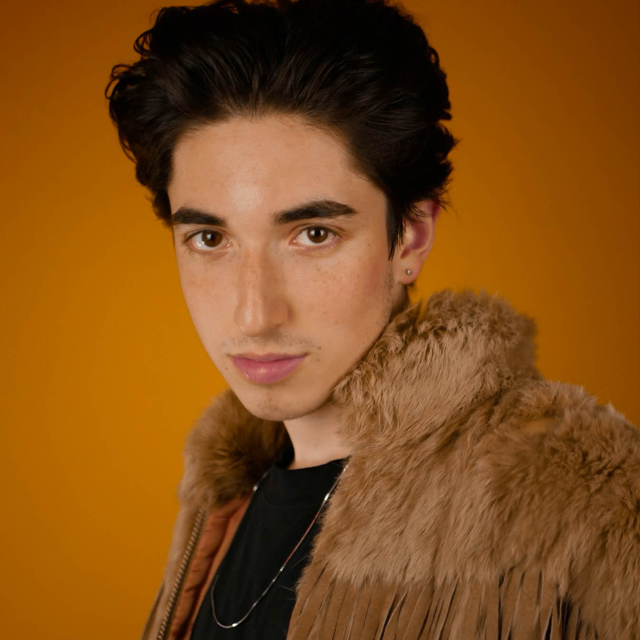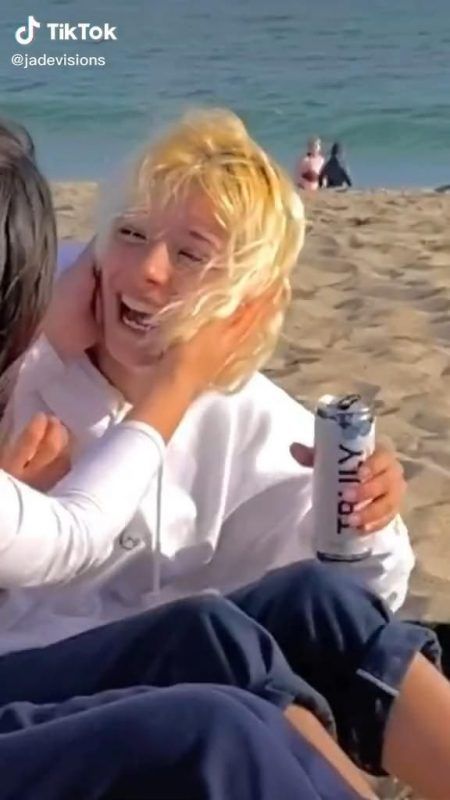The first time 20-year-old TikTok user @skinnyprince, also known as Alex Dekelbaum, went viral for his seemingly perfect New York life, he was absolutely miserable.
“I was going through a rough patch, a depressive episode,” Dekelbaum says. “I remember having a conversation with my roommate and we were saying, ‘We’re both miserable, but everyone on TikTok wants to live in New York City right now.’” They decided to film each other and their surroundings on a walk to a Covid test, and it garnered 30,000 likes on the app.
“I think that was the catalyst for romanticizing for me,” he explains.

"Romanticizing" Meaning
Romanticizing is defined in the dictionary as an act of idealizing, or making something seem better than it is. In the past few years, the word has faced an internet resurgence, with Twitter threads warning users not to “romanticize” men that aren’t worth it and Instagram captions encouraging users to “romanticize” the things around them. However, romanticizing’s most notable resurgence has taken place in the past year on TikTok, as teens and 20-somethings grappled with a devastating global pandemic, with little comfort aside from a couple of close friends, their phones and music. The result was a trend of montages, usually made by young people in big cities, who combined short clips of friends, car drives and picturesque settings accentuated by feel-good background music.
At just 17 years old, TikTok user @jadevisions, also known as Jade Moscoe, has amassed over 70,000 followers for her vibrant depictions of life as a teenager in Los Angeles. “I love it, I really was not expecting to reach so many people,” Moscoe states.

Building a Healthy Relationship with TikTok
Today, many users aren't afraid to admit they possess an unhealthy relationship with TikTok. Researchers have criticized the platform on multiple fronts, from its encouragement of habits, such as vaping, to the addictive nature of the highly personalized “for you” page. Several TikTokers have used the app and other social media platforms such as Instagram or Twitter, to express the negative self-image they’ve developed after comparing themselves to others on TikTok.
Meanwhile, others have found TikTok to be a platform that encourages new activities and happier lifestyles.
For Moscoe, using TikTok has been almost entirely positive. What began as simple clips of her adventures with friends in Santa Monica has now developed into evocative portraits of what it’s like to grow up in Los Angeles, opening Jade’s eyes to a world of filmmaking and business. It’s something she knows she’d be doing regardless of her following, as she’s constantly recording things.
“I have probably around 16,000 videos on my phone,” Moscoe laughingly states.
The successful TikToker also runs a pop-up consignment shop with her friends called Sweet-N-Sour, which she’s promoted on her various platforms.
“I can combine all my passions on TikTok,” Moscoe explained, before excitedly describing one particular video she made of a Sweet-N-Sour pop-up booth at her local flea market. “I told the flea market about it because they were asking why so many people were coming, and they asked us to be permanent vendors! Another influencer offered to fly me out to Texas and let me stay in an Airbnb for free, and make TikTok content for 3 days. A lot of exciting opportunities have come from it.”
Still, with all the opportunities her once recreational TikToks provided, Jade admits she’s been able to keep a healthy relationship with the platform. “Every time I decide to make a video and post it, I still am just doing it for me,” she clarifies, “a lot of my friends who are creators on TikTok have an unhealthy relationship with it...I feel lucky because a small percentage of people have my experience.”

The Positive Impact of Romanticizing
In the beginning of his TikTok career, Dekelbaum found himself outside of that small percentage. “It was very hard for me to appreciate life,” he explains. “I was only romanticizing my life to look good on the internet.” For the 20-year-old TikToker, this meant recording often staged clips of friends hugging, doing poses and kissing. “Anything out of the ordinary, even if it was very forced," he admits.
Dekelbaum recalls when he first decided to transform his attitude. while reading the comments on one of his particularly popular TikToks. He noticed that most users positively perceived his life, expressing things like, “‘Oh my God, I wish I was you,’ ‘Can I join your friend group?' and ‘Your life is literally a movie,’" shocking Dekelbaum, as he thought to himself, "No it’s not, I’m suffering!”
“It was so eye-opening to see people have appreciation for a life I couldn’t appreciate myself," Dekelbaum states, "and that really shifted something in me...I started realizing, huh, my life is pretty damn cool.”
From there, a transformation took place. “Instead of recording things to look good on social media, I started recording things to savor the moment,” Dekelbaum expresses.
Filmmaking on TikTok
Despite having a healthier approach to TikTok and developing a greater appreciation for life, Dekelbaum and Moscoe admit that their TikToks still have idealistic qualities. Both are students studying film and have noticed a feedback loop between their filmmaking and their TikToks. But instead of looking at their editing and directorial choices as inauthentic, they see these decisions as storytelling strategies to effectively depict the beauty they’ve found in their lives.
“Learning things like story structure and color psychology in school has affected my TikToks in ways I didn’t expect,” Moscoe explains.
Dekelbaum shares a similar sentiment, admitting that he’s begun to approach his TikToks as opportunities to hone in on his craft. “I think TikTok has forced me to think a lot more about establishing a sort of tonality and theme,” he exclaims, “challenging myself to explore new angles, compositions, and editing techniques has opened my eyes. I use a lot of those techniques in my own film work.”
The result has been a collection of cinematically styled memories and their own personal coming-of-age movies.
Beyond Romanticizing
“I don’t actually think of what I do as romanticizing, I think of it as placing memories together and creating moments I can look back on,” Moscoe stated. “But don’t be on your phone the whole time! If you’re on your phone in the car and you’re just passing things by you’ll never know what you would’ve seen. There’s opportunities everywhere you look, you just have to be open to seeing them. ”
Dekelbaum agrees. A few days ago, he posted yet another montage of himself and his friends in the city with the caption, “This is your sign to start romanticizing everything.” Still, he recognizes that the line between recording your life and actually enjoying it is a thin one.
Upon reflection, he expresses that maybe romanticizing isn’t quite the right word. “Romanticizing…it’s a tough one,” he pauses, tossing the word around in his head, “I think it’s really about capturing the beauty in every little moment…I think that’s it.”



